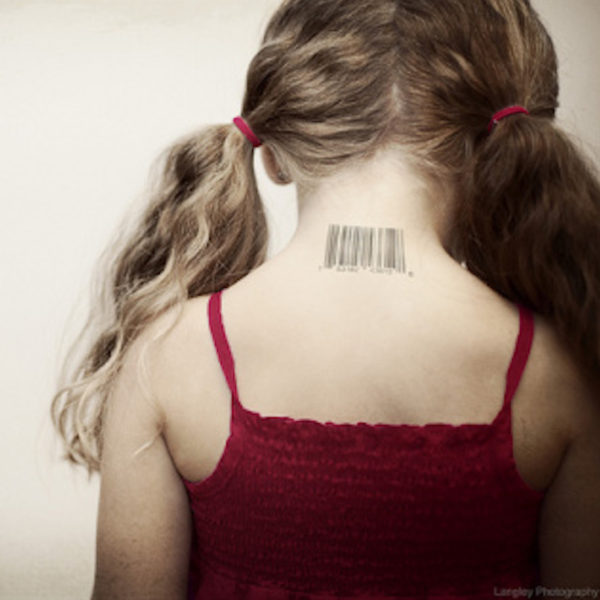

If you’re convicted of selling children to someone to rape or sexually abuse them, you’d no longer have to register as a sex offender.
Child sex trafficking would be viewed differently going forward – no longer a sex crime, but a financial one.
Likewise, when a non-family member kidnaps a child, an exceedingly rare but devastating crime, the abduction itself (one of the most serious crimes on the books) wouldn’t be enough to land that offender on the registry either.
The same would be true for offenders who’ve been convicted of sexually assaulting children – unless they do it more than once.
If these recommendations are adopted by state legislatures, convicted sex offenders like these could be living in your neighborhood, yet you’d never know it because you would no longer be allowed to check the registry.
Nor would daycare providers, youth organizations, schools, volunteer groups or businesses.
They, too, would be blocked from having access to critical information about where sex offenders live and work and what crimes they’ve committed.
These are just a few of the sweeping changes that an influential group of legal experts, the American Law Institute (ALI), have made to the nation’s Model Penal Code.
If state legislatures adopt these changes, as they’re encouraged to do, they would roll back decades of child safety laws, many of which have been championed by the National Center for Missing & Exploited Children over the last 37 years.
“We need your help to ensure that these misguided recommendations aren’t adopted in your state,” said John F. Clark, NCMEC’s president and CEO. “The stakes are staggering. Please join us and speak up for child protection. Let your elected officials know these proposed changes will have a devastating impact on the safety of our nation’s children. We need your voice.”
These changes to state laws would severely endanger children. Sexual assault, kidnapping, sharing child sexual abuse images, buying and selling a child for sex – these violent sexual crimes, sadly, are not rare and have a devastating and lifelong impact on children and their families. We see the harm done to these children every day at NCMEC.
The changes in the Penal Code are astounding in their scope and the total disregard for the damage sex offenders have done to their victims. It gets worse:
- Traffickers advertising a child for sex or those purchasing a child for sex: No trafficking crime.
- Offenders who abduct, entice or traffick a child for sex or, share child sexual abuse material don’t have to register as a sex offenders.
- All public access to information about registered sex offenders eliminated.
- Sex offenders are no longer required to provide key identifiers when they register, such as when they were born, fingerprints, or names they use online.
- No registration requirements if offenders are younger than 21 and sexually assault a child older than 12. Or if they sexually assault a child they are related to, unless the child is younger than 16.
So why have these drastic changes been made and why now?
The authors of these revisions pointed to the need to correct the “history of overwrought emotional reaction” often triggered by sexual offenses, even while acknowledging that “the lack of liability in certain cases may be unsatisfying.”.
They also acknowledged that many of their recommendations represent a “major departure” from current U.S. criminal laws and are a purposeful detour from the “strong currents of public opinion.”
Again, so why? How do you explain to the public that, if convicted, a 20-year-old man who sexually abused a 10-year-old child or a 40-year-old man who sexually abused a 12-year-old child will not be required to register as a sex offender? Why is that?
These crimes happen much more frequently than people realize. In 2020 alone, NCMEC staff helped law enforcement with more than 80 reports of those rare, non-family abductions.
Through our CyberTipline, the vehicle in the U.S. for reporting child sexual exploitation, we handled more than 37,000 reports of suspected online enticement of a child for sexual abuse and more than 15,000 reports of child sex trafficking.
And last year alone we received more than 21 million reports pertaining to online child sexual abuse material.
Unfortunately, none of us — not child advocates, not survivors, not their families— were consulted as the new Model Penal Code was drafted over the last nine years. Advocates’ views about sex-offender registries were dismissed as based on “emotions or intuitions.”
So about that emotion and intuition. We need it now more than ever. Please sign up to receive updates on how you can help in your state as we look ahead to the next legislative session. Do it for our nation’s children. Show them that emotion.
more recommended stories
 Fentanyl Seizures at Border Continue to Spike, Making San Diego a National Epicenter for Fentanyl Trafficking
Fentanyl Seizures at Border Continue to Spike, Making San Diego a National Epicenter for Fentanyl TraffickingFentanyl Seizures at Border Continue to.
 Utah Man Sentenced for Hate Crime Attack of Three Men
Utah Man Sentenced for Hate Crime Attack of Three MenTuesday, August 8, 2023 A.
 Green Energy Company Biden Hosted At White House Files For Bankruptcy
Green Energy Company Biden Hosted At White House Files For BankruptcyAug 7 (Reuters) – Electric-vehicle parts.
 Former ABC News Reporter Who “Debunked” Pizzagate Pleads Guilty of Possessing Child pδrn
Former ABC News Reporter Who “Debunked” Pizzagate Pleads Guilty of Possessing Child pδrnFriday, July 21, 2023 A former.
 Six Harvard Medical School and an Arkansas mortuary Charged With Trafficking In Stolen Human Remains
Six Harvard Medical School and an Arkansas mortuary Charged With Trafficking In Stolen Human RemainsSCRANTON – The United States.
 Over 300 People Facing Federal Charges For Crimes Committed During Nationwide Demonstrations
Over 300 People Facing Federal Charges For Crimes Committed During Nationwide DemonstrationsThe Department of Justice announced that.
